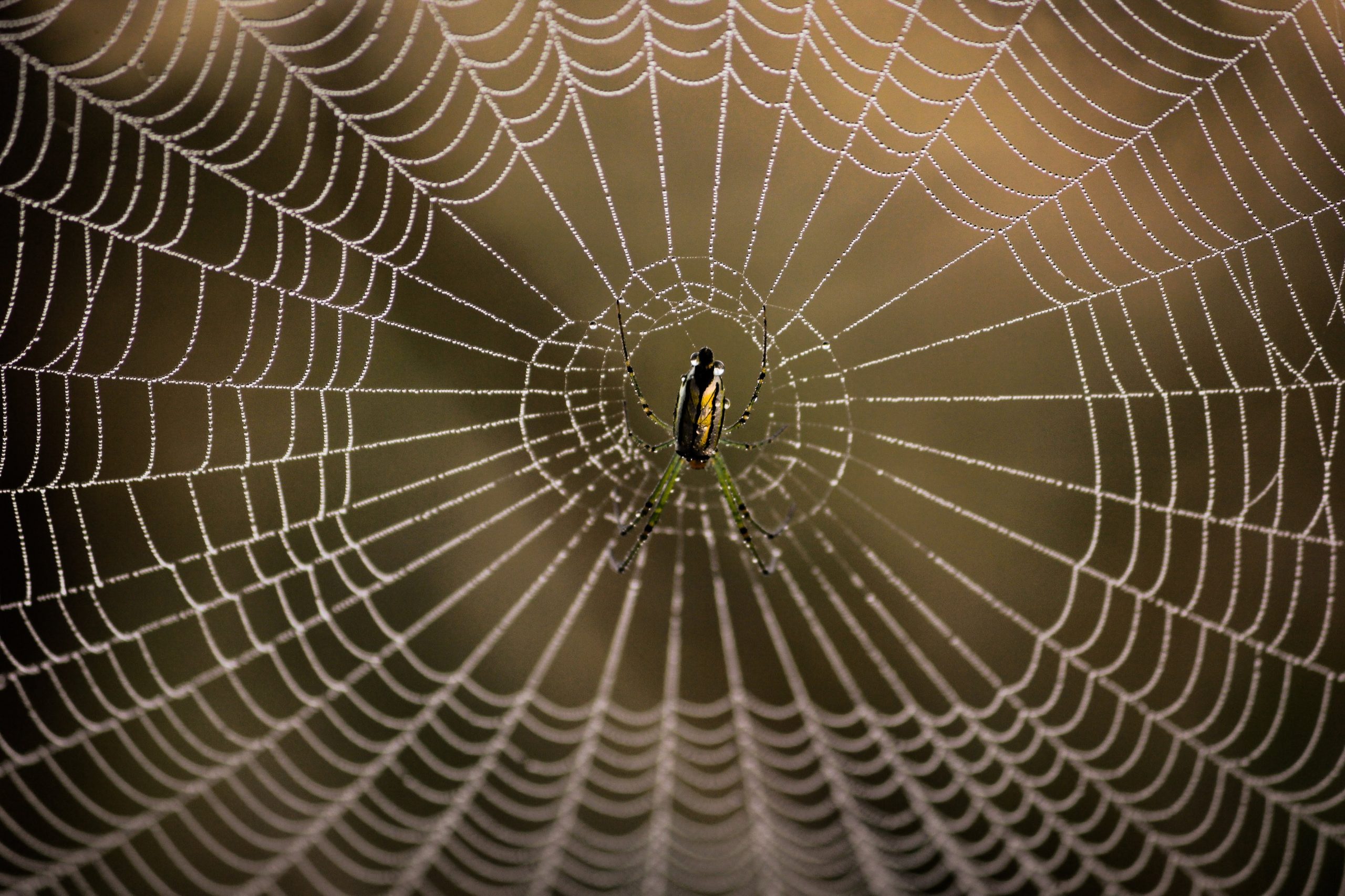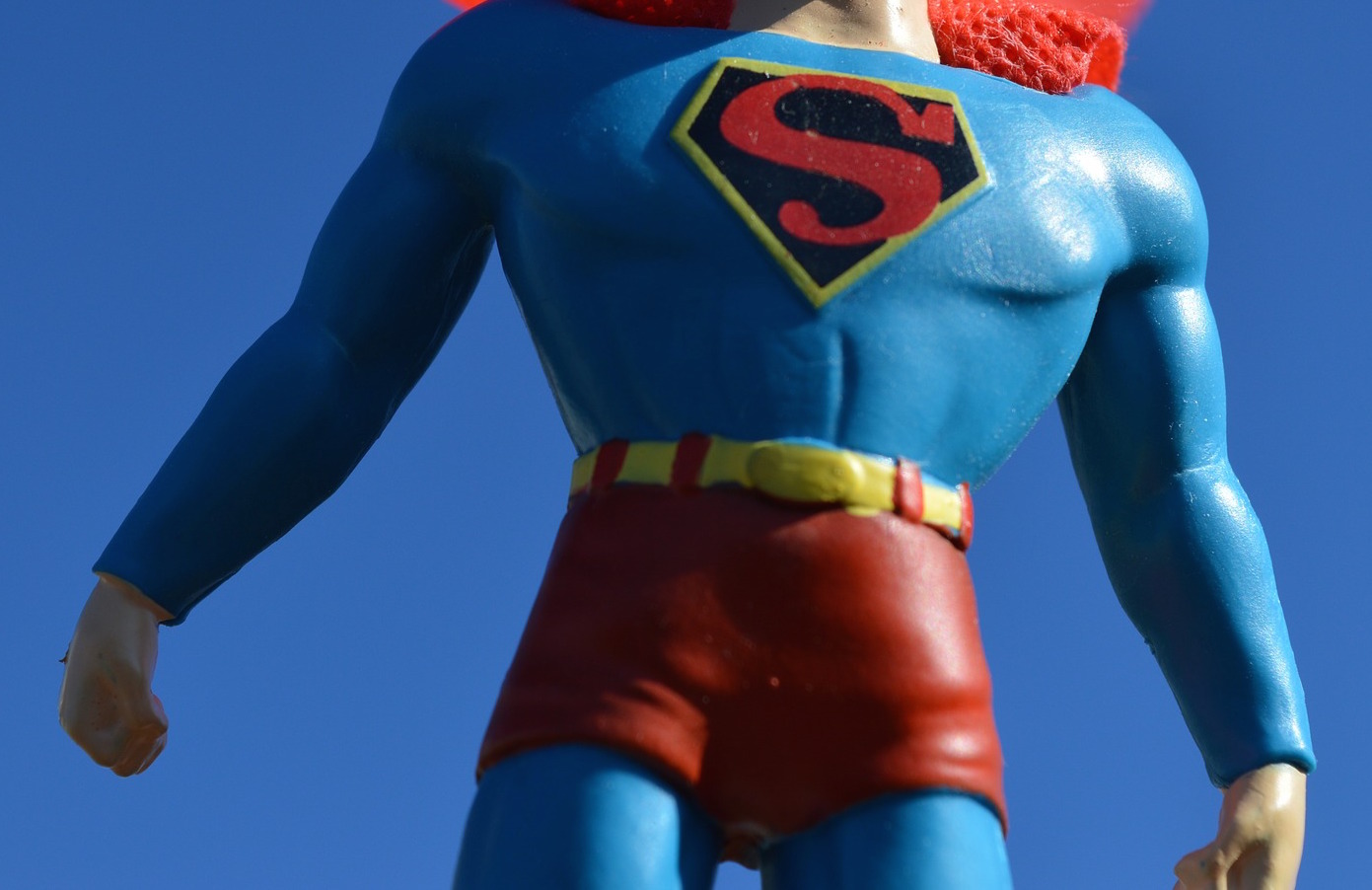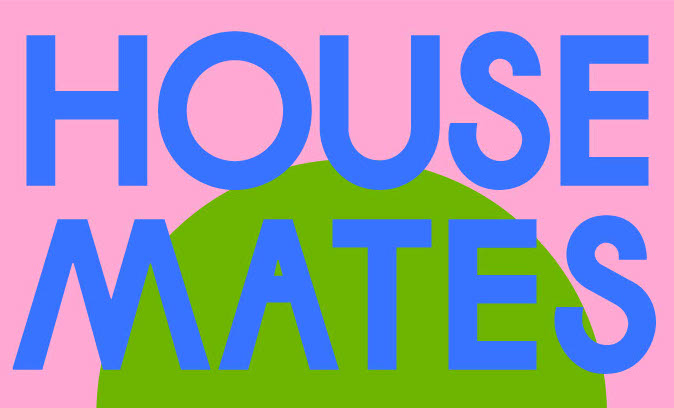Recommended Reading
Even My Rage Is More Creative Than Minerva’s
Mary Norris recommends "Arachne," a modern retelling of the myth, by Nina MacLaughlin

INTRODUCTION BY MARY NORRIS
In Wake, Siren, a vivid retelling of Ovid’s Metamorphoses from the female characters’ point of view, Nina MacLaughlin puts her own twist on mythology. She turns the stories upside down and inside out, reframing Ovid for the digital age. Imagine Cassandra unable to turn off the predictive text on her iPhone, or Galatea stalked in cyberspace.
 We look to mythology for consolation about the fixes we are in, and damned if we don’t find it. Greek and Roman mythology is rich in role models and object lessons for women: sisters, brides, nymphs, wives, daughters, monsters, mothers, maids, naiads, bacchantes, widows, queens, goddesses, muses . . . we’re all there. The female figures in mythology don’t often win. They are victims of violence, war, rivalry, and rape. Daphne was one of the lucky ones: fleeing from Apollo, she got turned into a tree, and to this day laurel leaves are bestowed on poets. Callisto, a companion of Diana the Huntress, is turned first into a bear and then into Ursa Major, the Great Bear—a cold, stellar existence that gives her the satisfaction of acting as a beam of stability in a confusing and dangerous world.
We look to mythology for consolation about the fixes we are in, and damned if we don’t find it. Greek and Roman mythology is rich in role models and object lessons for women: sisters, brides, nymphs, wives, daughters, monsters, mothers, maids, naiads, bacchantes, widows, queens, goddesses, muses . . . we’re all there. The female figures in mythology don’t often win. They are victims of violence, war, rivalry, and rape. Daphne was one of the lucky ones: fleeing from Apollo, she got turned into a tree, and to this day laurel leaves are bestowed on poets. Callisto, a companion of Diana the Huntress, is turned first into a bear and then into Ursa Major, the Great Bear—a cold, stellar existence that gives her the satisfaction of acting as a beam of stability in a confusing and dangerous world.
Don’t forget that Nina MacLaughlin is a carpenter, too. Her earlier book, Hammer Head, the story of her apprenticeship as a woodworker, showed her appreciation of tools and her skill in joining. Each episode in Wake, Siren is outrageous yet solidly constructed and beautifully detailed.
In the selection here, “Arachne,” a proud, talented weaver competes with Minerva, the Roman counterpart of Athena. The story of the contest between the two gives MacLaughlin the opportunity to stitch many stories into one and also to address craft. She portrays Arachne as a sort of totem of female audacity. Who dares defy the goddess? The takeaway from MacLaughlin’s reweaving might have impressed Ovid himself, her own immortal rival.
– Mary Norris
Author of Greek to Me: Adventures of the Comma Queen
Even My Rage Is More Creative Than Minerva’s
Nina MacLaughlin
Share article
“Arachne”
by Nina MacLaughlin
Growing up, cousin Phip sold puppies from the alley by the deli there. He leaned out from the alleyway and said, “Doggies have ’em have ’em” quietly as people walked past so it sounded less like someone wanting to sell you something and more like the idea of it came from inside your very own head. This was smart selling. You never knew what sort of puppy you were getting. Sometimes it’s foxes, sometimes it’s dog, sometimes it’s wolfies, sometimes something in between. He got out of poor, did Phip. But then he became not rich, not poor, just nothing, because they sent him to jail. They didn’t like him selling the breeds on the street. Another cousin, Ruby, she had her business. She used the bed in my dad’s room for her business. She went in, came out, and flashed a palmful of cash. “So easy,” she’d say. Lie.
My dad worked dyeing fabric and purple stained his fingertips. The skin on the tips and the skin below his nails. Like all the blood was gone to all his fingertips in the moment when they’re purple before they turn white and fall off. The way cousin Phip did with the dog tails sometimes. Elastic banded them. Red purple white, flimp, off they fell. Tails on the ground. My dad, though, bent over barrels of purple and breathed in the purple particulars—I think that’s what they’re called—all day. He had purple specks around his mouth when he came home, and purple specks on his neck. My dad had purple freckles. He leaned over a barrel all day with cloth in his hands and he leaned over the sink soon as he was home. Some of the purples washed off him down the drain. Some stayed on his skin. Always on his fingertips. And purple in his lungs, inhaling it that way. The particulars float up. Just because you can’t see a thing doesn’t mean it isn’t there. Back bent, fingers stained, lungs stained, and my dad was good at the work and proud of the work and he’d come home and tell me some piece of cloth he’d dyed had sold for a bag full of cash to some rich-bitch princess wanting deep color for a cape—except he never called her a rich-bitch princess, that’s what I’m calling her. He showed nothing but respect, and I always wanted to ask, if they buy it for so much, how come you make so little. But I never asked it.
He brought home scraps and he showed me sewing. He showed me how to weave. He told me, “Not like Phip, not like Ruby. You don’t sell dogs on the street. You don’t wear lipstick if you don’t want. You find your way.” He said those words a lot. You find your way. They’re words that don’t make a lot of sense even if you think hard about them, that only come to make sense out of a long time and thinking about it, but not in a direct way, like letting it sort of linger at the side of your brain instead of it occupying the center of it. You find your way. It was always there in my brain and I didn’t know what it meant, but then I did.
I liked the loom from when I was small. I learned early and it’s most of what I did. I got taught the basics, then I taught myself more and I just kept doing and doing and I impressed my own self. I’d finish up a tapestry and I’d lay it down on the floor. I’d stand above and think, Goddamn. It wasn’t there, now it is. Every time it felt like a miracle. I’d look at the skeins in a heap by the loom, all their separate threads, and I’d think, Goddamn, first strands one by one, then this all together. This thing whole. Something out of something else. I made this transformation. The act of art is metamorphosis. It’s where I found my pride.
I made this transformation. The act of art is metamorphosis.
And it turned out I wasn’t the only one impressed. Neighbors on the block, when they stopped in, maybe to bring a casserole, maybe to bring some pastry, maybe to just see by me to make sure I was okay (no mom, good-but-gone-a-lot dad, people’s concerns), they saw, too. And they said, “Oh oh ooooooh. Look at you. Look at what you’ve done.” And first I thought, this is just nice people being nice. But nice isn’t telling others and having others tell others about how wowed they were. That’s when you can start to believe it might be good.
So people started coming. They came to look and I’d sit there and take their praise. Oh the colors oh the way they bleed one to the next oh the detail oh the scene it’s like a painting it’s like it’s real, you got a gift, you were touched by the gods, you own skills like no one’s ever seen. One thread on top of the next, one hour on top of the next, I just kept bettering. You find your way. This was my way. I was young but my name was known, and not just on my block and not just in my village, but in places miles away. People heard some things about me. They heard I was good.
They heard I was the best.
Rich people, besides money, got options. They’ve got options so much they don’t even realize the options they’ve got. Poor, less options, sometimes none. I think people forget that it’s not just money. So my dad sells a purple robe to some fancy dan, and this fancy dan sees the color’s special and he’s feeling all puffed up for having good taste enough to find my dad. He thinks the difference is that he can afford to buy this robe, and my dad can’t. That’s a difference, but that’s not the difference. Fancy dan has time to figure out what his path is. He has time to wonder: What do I want? How do I get it? Poor, harder to think about what you want. Less time wondering, more time worrying. More time making sure enough purple cloth is made so there’s money enough for food and roof. Plus, you think too much about what you want, you’re swallowed whole. Rich, you’ve got to worry less about having to sell puppies from a box by the alley and whether they’ll take your body into jail for it. Rich, you’ve got to worry less about being bent over a barrel so your back’s curving even when you’re not bent over the barrel. Rich, you’ve got to worry less about questions of roofs, questions of sweaters, questions of bread.
I paid attention, I stayed awake, I knew about options, what it was to have them, what it was to not, and I knew I wanted some. One way to options is being fine at something, being finest best of all. So each day I sat at my loom and sometimes it’s the last place I ever wanted to be, but I sat there for knowing it was the one way to get better, to keep doing and doing.
I watched the people I knew reach the limits of their options. Again and again. It was as though the kids I grew up with, my pals on the block, from the village, it was like all of a sudden there were these walls erected, these tall, smooth white walls, and they’d be walking along, living their lives, and then, slam, straight into this wall. And there was no going over and no going around, just dead-ended a hundred percent. Eagle, BenBen, Paulo, they went to prison. Kevin, he got killed by the police. Spice Rack, Henrietta, they got killed that way, too. Alma went wrong in her head because she kept drinking from this one well we knew had the poisons, but she drank anyway because that’s the way she always did it and there was nothing that would change her mind. Gloria got sick and the doctors said, We’ll cure you, but you need this much. She didn’t have that much. She died. Sylvia talked so much about being tired. “It’s tiring being poor,” she said, and then one day she gave herself permanent rest. Sometimes when things go so bad, when there’s no hope of bettering, that’s where you get led. Maybe where my mom got led. Or where she led herself. To her own end, that is.
I tried to keep that big white wall from arriving in my life. And what I learned is that it’s not just about being finest at something, not just about being the very best. It’s about speaking it that way, too, about knowing it and owning it and saying it. I knew it. I knew I was the finest. And I said it. I had pride.
“This is the most amazing weave work I’ve ever seen,” people said.
“Thank you. I haven’t seen work that’s finer myself,” I’d say. Grateful, yes, and also knowing. Say what you know.
Once a person whispered: “You must have learned from Minerva.”
Wrong. I learned from my dad and I learned from myself. And the fact of it was, I was better than Minerva.
And then I wondered why I wasn’t saying that out loud. You don’t get to be big in this world if you don’t know how to own your skill. You don’t get over that smooth wall if you don’t go after the thing you’re good at with everything you’ve got. And even then, other walls might rise.
So I started saying it out loud. “I taught myself, and I’m better than that weaving goddess. Any single day of the week I could outweave Minerva. She should come and try me.” I liked the way it sounded. “Get yourself down here and we’ll see who’s best,” I dared her. They’ve got a lot of power, but we’ve got power, too. More than they want us to think.
An elder lady with a gray knot of hair and cheeks that dangled off her face like thin-sliced meat had the nerve to tell me to take it easy. “It’s enough to be the best in the world that you know,” she said. “You don’t have to outdo the gods.” She said something against outgrowing my britches, that I should think about taking back what I’d said about outweaving Minerva. That I should think about apologizing.
Old ladies think they know. She comes into my place to watch me weave and look at what I’ve made and thinks she can tell me a thing? No. She’s lucky I didn’t smash her face, because that’s what I wanted to do. All people do is tell you why you can’t or won’t or never will or shouldn’t try. These scared old ladies. “You’re old,” I told her. “You’re old and the years got you dim. I never asked once for your advice. I advise myself. I’m sure of myself, and it’s hard for you to hear. And I’ll keep standing by what I said. Minerva should come and try me.”
Minerva should come and try me.
“So be it,” the old lady said, and she showed herself to be Minerva in disguise. The other folks in the room bowed and gasped and clutched their hearts. Not me. I stood with my shoulders back and my eyes front. I hold my own is why. The blood that rose to my cheeks in blush, it was surprise, and it was pleasure. I was getting what I wanted.
That’s a chance.
I sat at my loom. She had hers. We started. My blood moved faster. I raced the shuttle back and forth across the warp, the strands collecting. It’s what I’d spent most of my eyes-open hours doing. The weight of the shuttle in my hand, the speed of the slip through the wool, the treadles up and down, the squeaking, I knew this all, like it was my own body, as familiar as the inside of my mouth, as familiar as the weight of my leg, the sighs from my belly after a meal. I was motion and color and threads combining and I could tell, in a blurred way, that I was doing the finest I’d ever done. The patterns and shapes kept coming and awareness as to how it happened left me, like I had disintegrated into just the making, gone from myself, and just aiming energy toward the wool. The best of all feelings. And never more so than in this session at the loom.
At some long periphery, like she was in another galaxy, Minerva worked with fury. Now and then I heard her breath and heard her swish the shuttle across the wool. The sweat slid down my back, my shoulders ached. I didn’t care what she was doing. I barely knew what I was doing, only that I was doing it, it was happening, and it was fine.
Minerva finished first. She spread the tapestry and all I saw from the side of my eye was a weave of olive branches around the edges. Peace offering. It made me work harder and faster and bolder. She wanted peace because she knew I was going to win. There’d be no peace.
I near collapsed off my stool when I finished and a woman nearby had to hold me up. I couldn’t believe it when I saw what I’d done. I’d painted with wool. I painted my whole poor world versus all the deathless gods who live guiltless. Who live guiltless and without consequences. All we know is consequences. We’ve got mountains of consequences on top of us that press us and bury us and keep us down.
That’s the bull raping Europa, and the waves looked so real you’d think your hand would come away wet if you touched it.
That’s the eagle before he violates Asterie, carrying her off in his talons.
That’s Leda, getting herself crushed underneath the swan.
That’s Jove disguised as a satyr giving Antiope twins inside her.
That’s Jove turned into gold spray and entering Danae unconsenting.
That’s Jove in the form of fire, tricking Aegina.
That’s Jove playing a shepherd, fucking Mnemosyne nine nights in a row.
And Neptune, as a bull, Neptune as a ram, a stallion, a bird, a dolphin, tricking us on earth. All the lies. All the power over people. Power born of layers and layers of lies. And Phoebus as a hawk, a lion, a shepherd, lying, tricking, fucking. And all those gods, all those deathless ones. They never met regret. They don’t fear mistakes because they don’t know consequences. Never guilty, never punished. I showed you all, showed each crime, showed all you criminals. And yet we’re the ones to pay. How’s it work? You murder. You rape. You violate. And it’s us who fall. Why am I the only one to say it?
I say the names of all the fallen.
Europa, Asterie, Leda, Antiope, Alcmena, Danae, Aegina, Mnemosyne, Proserpina, Bilsaltes’s daughter, Aeolus’s daughter, Medusa, Melantho, Erigone, and so many more. Taken down in innocence. I showed the truth.
And was it an accident that I showed this guardian of virginity as many sexual violations as I could fit on a tapestry? Nope, it sure wasn’t. And of course she didn’t like being bested, and of course she didn’t like the feeling one bit that some poor mortal could outdo her. But I’ll go ahead and bet that her reaction came from this mirror held up to her and her world, seeing the twisted immoral forms “love” could take, knowing she’d done nothing to guard in them what was sacred in her.
And was it an accident that I showed this guardian of virginity as many sexual violations as I could fit on a tapestry? Nope, it sure wasn’t.
So what did she do? She acted like a brat child. She grabbed what I’d just made. And she started tearing. She shredded it. This god, this deathless one. All those scenes. All that color. All those crimes made clear for all eyes to see. Too much. She tore it apart. I stood. I watched. Finest thing I’d ever made, truest tales told, in tatters. Something drained out of me, seeing that work a wreck. Some force I had just seemed to slide right out of me and a tired landed on me like it had never landed before.
But tearing it apart wasn’t enough for her. She needed me to know better what was what so she took my boxwood shuttle in her hand, whose weight I knew like it was my own bones and blood. She grabbed it and she hit me. I have been in fights. I know how it feels to be in danger that way. When there you are maybe yelling some, maybe fighting, and you’re on your two legs and then your arms get grabbed and you get thrown and you fly through the air into a bureau or a wall, tossed like a sack of laundry. It hurts but it doesn’t hurt because you know how to leave yourself. It hurts but it doesn’t hurt because all your thoughts are on exits.
But all the fight was out of me. All the energy was out of me. It had left me when I saw what I’d made in shreds on the floor. Like I could do the very finest thing of all, and still, instead of praise, I get punished. You do wrong. You get punished. You eat Skittles. You get punished. You stand in the wrong place. You get punished. What drained the energies right out of me is that you do right, you do finest, you do the best undeniable, you still get punished. That big white wall I’d been trying to avoid, it rose up in the moment where all the walls should have come right down. I got tired the way Sylvia got tired. Minerva hit me once, twice, three times. I took it. Four, five, six. Across the forehead. I felt the blood slide down and in toward my eye. Seven and that’s when I knew enough. And I took what energies I had and I grabbed a rope and I noosed the loop and quick I strung it over my head to end it. There was no going any further.
Oh, but then Minerva takes pity. She says, “You’re deserving not to die, but you’re still deserving punishment.” You know what’s next? I live, but I live eight-legged. An angry little spider. Weaving webs, and they’re as fine as you’ve seen. I still go. I find my way. She thinks: harmless spider. She thinks: she doesn’t do harm and her webs can be invisible except in the dew, and they’re weak enough to get swatted through with a broom, and people won’t come to look and sigh and wow. And if they do, the next thing they’ll do is wipe the web away because folks don’t want spiders all around. Let her think it. Let her think how harmless. Let her think she did a good job punishing. But I learned about consequences. I learned how certain choices echo back and pin you.
Besides being turned into a spider, I heard Minerva say another thing. So it wasn’t just the finest thing I’d made, and it wasn’t just the beating, and it wasn’t just the being turned into a spider. “This is how you’re going to live. And this is how all who descend from you will live.” If I had babies, they’d be spider babies, is what she was saying. She went on. “Understand what it means? You fear the future.”
Didn’t she know? I guess she didn’t. You live the way I live, you grow up the way I grew up, you watch what happens to the people it happens to, all you do is fear the future. There’s no other choice. You’re rich, you’re guiltless, you’re deathless, the future’s something to fill with boats, ambrosia, giant pets, afternoons that last forever, every sunset seeming like it’s there for you. It just becomes a question of what to do with the fear. Same way I had my dad’s words and I found my way before at the loom, I find my way now. I fear the future, so you know what I do?
I have babies. I have babies and babies and babies. And they live for a bit and then what happens, my babies have babies. Each of my babies has babies. There are already babies beyond you can count. Picture as many of us as you can. And then more because it keeps going. And how many babies will my babies’ babies have, and how many babies will my babies’ babies’ babies have? Oh, more than you can count. We will be so many. And we will keep coming. More and more together. We find our way. We’re doing it right now. Do you know? Who should fear the future? You.








